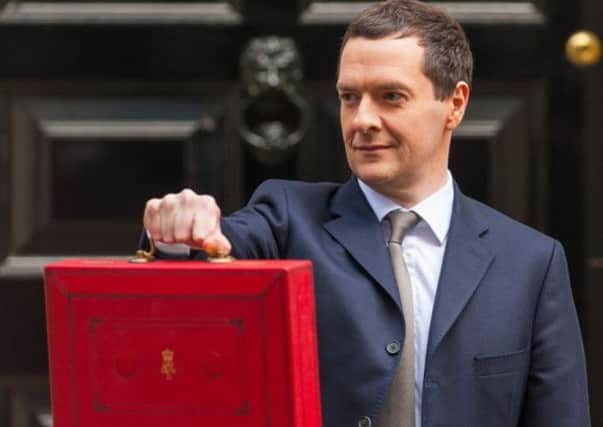Bill Carmichael: Paying the bill for Osborne's hollow boasts


JEREMY Corbyn doesn’t get much right – but he pretty much hit the nail on the head this week.
In his reply to George Osborne’s speech in the Commons the Labour leader said the Budget was the “culmination of six years of failure”.
Advertisement
Hide AdAdvertisement
Hide AdWell said, that man! This verdict my seem a little harsh – particularly taking into account our economic growth is outstripping our competitors and this week’s figures showing employment at an all-time high.
But in terms of the economic fundamentals – spending, borrowing and debt – Corbyn was spot on. Osborne’s record in office is one of unrelieved failure.
For example back in 2010 the Chancellor promised to eliminate the annual deficit – the difference between what we earn as a country and what we spend – by 2015.
This confident boast turned out to be little more than pie in the sky based on figures that have proved to be wrong.
Advertisement
Hide AdAdvertisement
Hide AdIn fact the one thing you can absolutely rely on in a changing world is that the forecasts released by the Treasury and the Office of Budget Responsibility will be wrong.
Frankly, you would be better off plucking figures at random from a hat.
Indeed growth forecasts made by the OBR just four months ago had to be “revised downward” this week – in other words they have proved to be so hopelessly wrong as to be absolutely meaningless.
As a result a terrifying £56bn black hole has opened up in the public finances, and if Osborne knows how he is going to plug this gap he wasn’t saying this week.
Advertisement
Hide AdAdvertisement
Hide AdInstead, he has breezily announced that the deficit will now be eliminated by 2019/2020, based on a new set of forecasts that are unlikely to prove any more reliable than the last lot.
If this is to happen it will require something akin to an economic miracle in the final year of this Parliament – a £21bn deficit in 2018/19 will somehow turn into a £10bn surplus in 2019/20.
Where the money will come from to perform this remarkable £30bn turnaround isn’t clear – but it will most likely mean further spending cuts, or tax rises, or a combination of both.
There was a lot to like in this week’s budget. The moves on business rates and class 2 National Insurance contributions were a welcome boost to small businesses and the self-employed who provide the backbone to our economy. And the raising of the 40p higher income tax threshold will lift many middle earners out of the super tax territory.
Advertisement
Hide AdAdvertisement
Hide AdBut frankly this is all little more than tinkering at the edges. The big problem – and one Osborne seemingly cannot address – is simply that the government continues to spend too much.
Fully six years after the installation of a Conservative Chancellor in Number 11 Downing Street we are as a country spending an astonishing £72n a year more than we earn, and we are using borrowing to plug the gap at a rate of more than £1.3bn a week.
Borrowing at this level is unsustainable – particularly if interest rates begin to rise, as they inevitably will one day.
We are already spending around £40bn a year in debt interest payments. How many schools and hospitals could that provide if we weren’t paying it to the money lenders?
Advertisement
Hide AdAdvertisement
Hide AdAnd you have to ask the question if we can’t cure our addiction to borrowing during a time of economic growth, when tax revenue is flushing into the Treasury, when can we?
Borrowing is little more than deferred taxation. We are in effect stealing from our children and grandchildren who will be saddled with massive debts because of our stubborn refusal to live within our means.
Each passing day we are adding to the massive debt mountain – now standing at a breathtaking £1.7 trillion – that will one day have to be paid off by future generations.
And for all Osborne’s fine words – and achievements in other areas – he can’t escape that plain fact.
Advertisement
Hide AdAdvertisement
Hide AdDuring the Budget speech I lost count of the number of times that Osborne promised: “We will put the next generation first.”
It is a hollow boast. Thanks to the Chancellor the next generation will indeed be first – first in the queue to pay off £1.7 trillion worth of debt, run up by their feckless parents and grandparents.